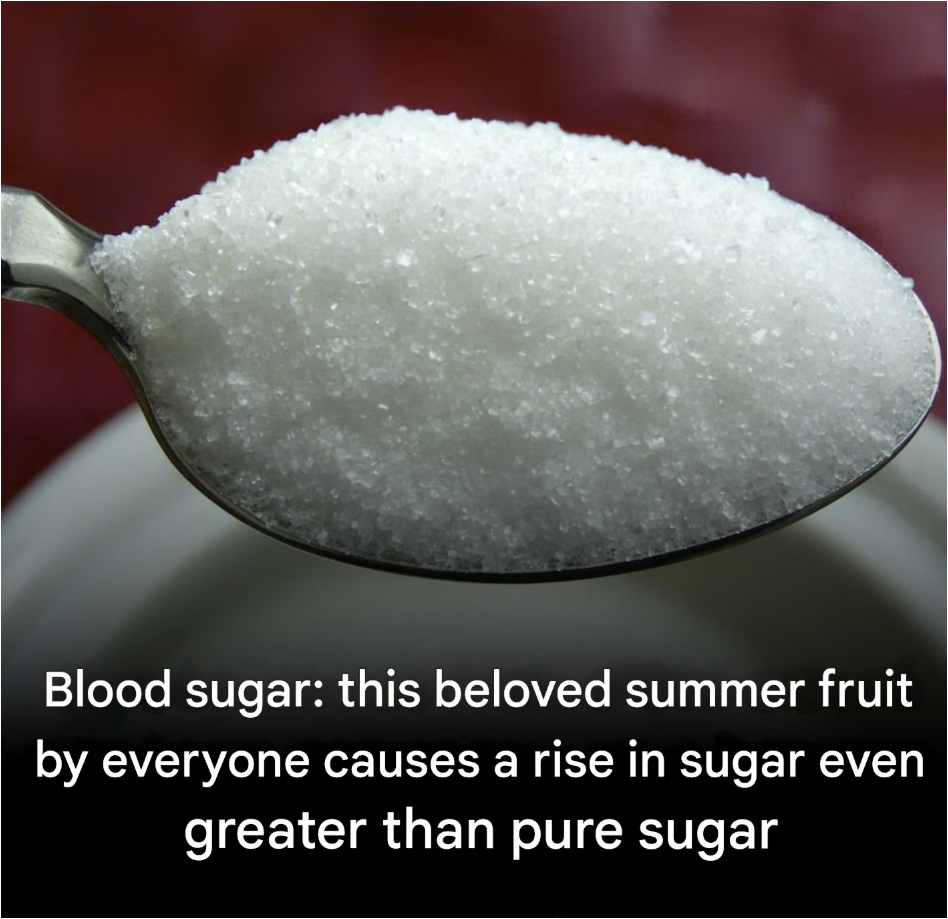It’s one of summer’s simplest pleasures: watermelon, with its vibrant red flesh, thirst-quenching texture, and promise of freshness. We love it sliced, cubed, or even blended into a smoothie. Yet, behind its « healthy » appearance, lies a lesser-known effect on our bodies—particularly on our blood sugar levels.
A false friend for blood sugar?

Long considered a slimming aid thanks to its high water content and low calorie content, watermelon is making a strong comeback on every table as soon as the thermometer rises. But recent studies warn: this fruit with its sweet and innocent taste can cause rapid increases in blood sugar levels , sometimes more marked than those caused by white sugar itself.
Why? Because it contains very little fiber and almost no fat or protein—components that usually slow down the absorption of sugar. As a result, once in the mouth, its sugars (glucose + fructose) are absorbed at high speed, causing a rapid metabolic spike , especially in people over 50 or those with insulin sensitivity .
